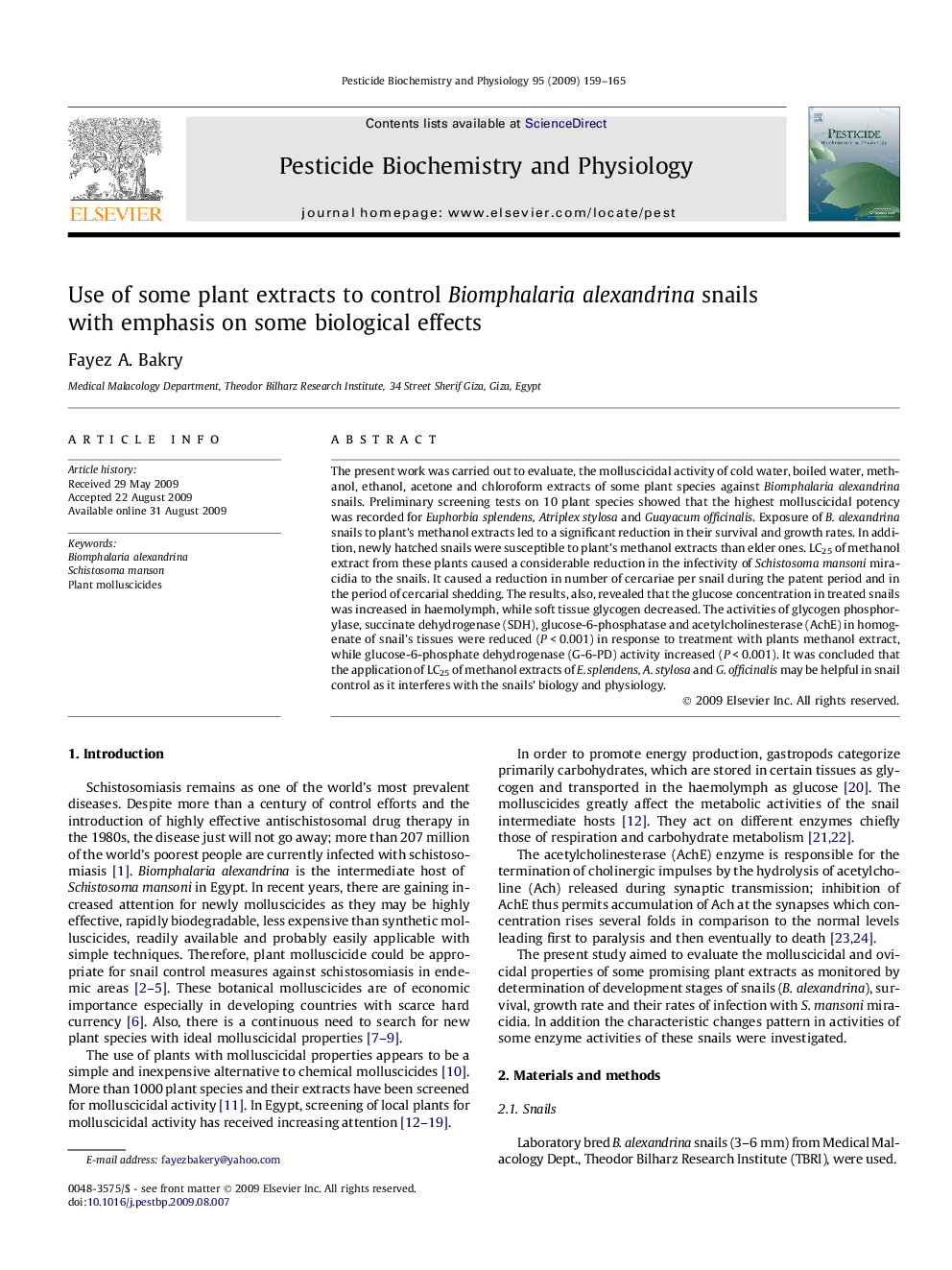| Article ID | Journal | Published Year | Pages | File Type |
|---|---|---|---|---|
| 2009530 | Pesticide Biochemistry and Physiology | 2009 | 7 Pages |
The present work was carried out to evaluate, the molluscicidal activity of cold water, boiled water, methanol, ethanol, acetone and chloroform extracts of some plant species against Biomphalaria alexandrina snails. Preliminary screening tests on 10 plant species showed that the highest molluscicidal potency was recorded for Euphorbia splendens, Atriplex stylosa and Guayacum officinalis. Exposure of B. alexandrina snails to plant’s methanol extracts led to a significant reduction in their survival and growth rates. In addition, newly hatched snails were susceptible to plant’s methanol extracts than elder ones. LC25 of methanol extract from these plants caused a considerable reduction in the infectivity of Schistosoma mansoni miracidia to the snails. It caused a reduction in number of cercariae per snail during the patent period and in the period of cercarial shedding. The results, also, revealed that the glucose concentration in treated snails was increased in haemolymph, while soft tissue glycogen decreased. The activities of glycogen phosphorylase, succinate dehydrogenase (SDH), glucose-6-phosphatase and acetylcholinesterase (AchE) in homogenate of snail’s tissues were reduced (P < 0.001) in response to treatment with plants methanol extract, while glucose-6-phosphate dehydrogenase (G-6-PD) activity increased (P < 0.001). It was concluded that the application of LC25 of methanol extracts of E. splendens, A. stylosa and G. officinalis may be helpful in snail control as it interferes with the snails’ biology and physiology.
